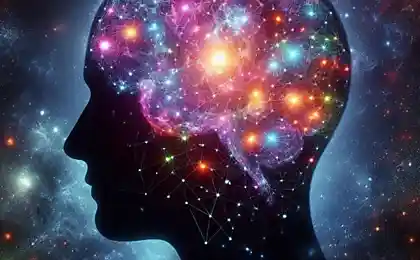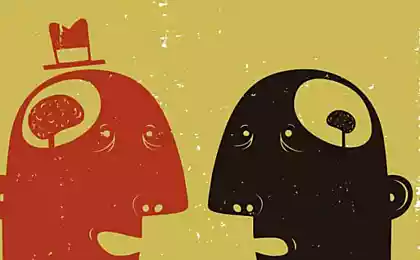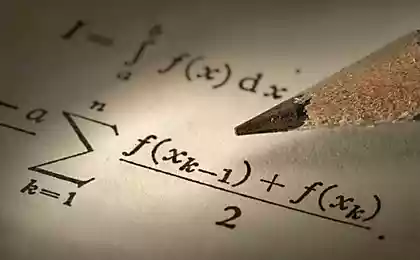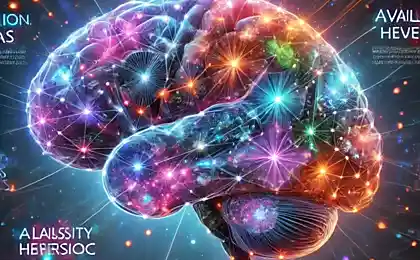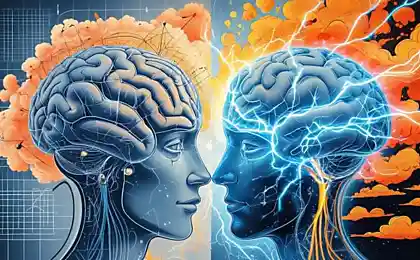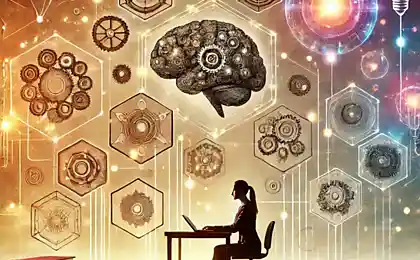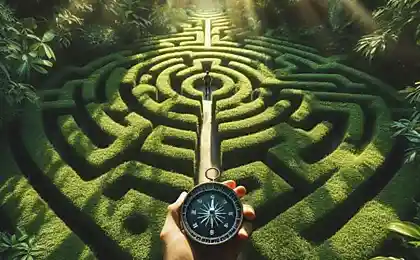848
10 thinking of phenomena that cause us to make bad decisions
We like to think that we are perfect. Well, almost perfect. In a sense, this is true, but certainly not a question of thinking. Here people often become hostages of illusions and psychological phenomena, which recognize only possible if to know about them.
Website has collected some excellent examples of such "brain bugs". Also under article we publish a selection of links to related material that can be used to extend and complement their knowledge about psychological phenomena.

So there you go!
The effect of ambiguity h2> The effect of ambiguity - a phenomenon in which people make decisions based on what they know about the results. If one is presented with a choice, and knows the result of one of the embodiments, it will select it, , regardless of whether there may be another advantageous embodiment. For example, when it comes to investing in the stock market, people will first invest in the old, well-known events, but not in new technologies that can bring both unprecedented profits and huge losses.
The effect IKEA h2> Another horrible sweater, knitted grandmother to the New Year, is seen with a smile and warmth, although the store you would have this would not have bought. This is a prime example of the so-called effect of IKEA. The phenomenon arises from the fact that the people are often disproportionately appreciate the value or meaning of things, the creation of which relate
Rhyme h2> People regard rhymed phrases like more truthful and more accurate. It is also true of the catchphrases that what is called a "stick to the tongue." For example, the study participants considered the phrase "financial success makes people healthier," unlikely, while the phrase "Rich something healthy" found a clear response. When the slogan of any product rhymes, this product is more credible.
Clustering Illusion h2> The illusion of clustering - when people see certain patterns in a set of random accidents, even when between them there is no correlation. Our brains need connectivity story he tells himself about the world
The deficit of empathy h2> It is a recognized problem. People tried everything "with its bell tower" and not try to put yourself in the other person. Such an effect is often causes parents underestimate their children's needs. Children perceive the world differently than adults, but adults often forget to take this into account.
The effect Peltsmana h2> Named professor at the University of Chicago Sam Peltsmana effect leads to the fact that too many devices to ensure safety, and a huge number of safety rules cause more accidents and injuries due to feelings invulnerability false
The hypothesis of a just peace h2> Terrible things are happening every day, and often this simply can not be helped. This leaves people only one option - to write off all the general atmosphere of our time, to which even explicitly credited poorly understood.
The effect of time-saving h2> It is logical to assume that if you drive faster, until you will reach your destination quickly and save a lot of time. The reality is much more complicated. In the course of psychological studies have found that people tend to greatly overestimate how much time you can save by adding speed. Apparently, the problem is that the brain does not cope with exact estimation of speed, because evolution is not taken into account the fact that people can move faster than a run.
Dunning-Kruger Effect h2> Dunning-Kruger effect is a psychological paradox. People who have a low level of qualification do the wrong conclusions and make unfortunate decisions, but can not realize their mistakes because of their low qualification.
The asymmetric dominance effect and lures h2> This effect occurs when people choose one of two options, comparing the two with the third. Here is an example of choosing between two restaurants. In one of them is very good food, but it is far to reach. The other is near, but the food is not so good. Quite a difficult choice, right?
19 psychological traps in which we find ourselves, without noticing 20 lessons of social psychology, which will be useful to everyone Five psychological facts, allowing to sell us everything everything 15 facts of psychology that explain much
via www.novate.ru/blogs/310715/32351/
Website has collected some excellent examples of such "brain bugs". Also under article we publish a selection of links to related material that can be used to extend and complement their knowledge about psychological phenomena.

So there you go!
The effect of ambiguity h2> The effect of ambiguity - a phenomenon in which people make decisions based on what they know about the results. If one is presented with a choice, and knows the result of one of the embodiments, it will select it, , regardless of whether there may be another advantageous embodiment. For example, when it comes to investing in the stock market, people will first invest in the old, well-known events, but not in new technologies that can bring both unprecedented profits and huge losses.
The effect IKEA h2> Another horrible sweater, knitted grandmother to the New Year, is seen with a smile and warmth, although the store you would have this would not have bought. This is a prime example of the so-called effect of IKEA. The phenomenon arises from the fact that the people are often disproportionately appreciate the value or meaning of things, the creation of which relate
Rhyme h2> People regard rhymed phrases like more truthful and more accurate. It is also true of the catchphrases that what is called a "stick to the tongue." For example, the study participants considered the phrase "financial success makes people healthier," unlikely, while the phrase "Rich something healthy" found a clear response. When the slogan of any product rhymes, this product is more credible.
Clustering Illusion h2> The illusion of clustering - when people see certain patterns in a set of random accidents, even when between them there is no correlation. Our brains need connectivity story he tells himself about the world
The deficit of empathy h2> It is a recognized problem. People tried everything "with its bell tower" and not try to put yourself in the other person. Such an effect is often causes parents underestimate their children's needs. Children perceive the world differently than adults, but adults often forget to take this into account.
The effect Peltsmana h2> Named professor at the University of Chicago Sam Peltsmana effect leads to the fact that too many devices to ensure safety, and a huge number of safety rules cause more accidents and injuries due to feelings invulnerability false
The hypothesis of a just peace h2> Terrible things are happening every day, and often this simply can not be helped. This leaves people only one option - to write off all the general atmosphere of our time, to which even explicitly credited poorly understood.
The belief in a just world often means that people tend to look for excuses where they can not be.
The effect of time-saving h2> It is logical to assume that if you drive faster, until you will reach your destination quickly and save a lot of time. The reality is much more complicated. In the course of psychological studies have found that people tend to greatly overestimate how much time you can save by adding speed. Apparently, the problem is that the brain does not cope with exact estimation of speed, because evolution is not taken into account the fact that people can move faster than a run.
Dunning-Kruger Effect h2> Dunning-Kruger effect is a psychological paradox. People who have a low level of qualification do the wrong conclusions and make unfortunate decisions, but can not realize their mistakes because of their low qualification.
This lack of understanding of the mistakes leading to the fact that the erring people believe in their own right. Accordingly, this leads to increased self-confidence and sense of superiority. Paradoxically, in fact, competent people tend to doubt yourself and your abilities and decisions.
The asymmetric dominance effect and lures h2> This effect occurs when people choose one of two options, comparing the two with the third. Here is an example of choosing between two restaurants. In one of them is very good food, but it is far to reach. The other is near, but the food is not so good. Quite a difficult choice, right?
As long as there is a third option - a restaurant with a really bad meal at a distance somewhere between the two original restaurants. Comparison of the first two variants of a third completely changes the result. Initially the question was this: the quality of food or the distance from the restaurant. In the case of a further embodiment, the question becomes "what restaurant the best of the other two," and it becomes the obvious choice restaurant, where the food is better than the average restaurant, and he was closer to that.
19 psychological traps in which we find ourselves, without noticing 20 lessons of social psychology, which will be useful to everyone Five psychological facts, allowing to sell us everything everything 15 facts of psychology that explain much via www.novate.ru/blogs/310715/32351/









